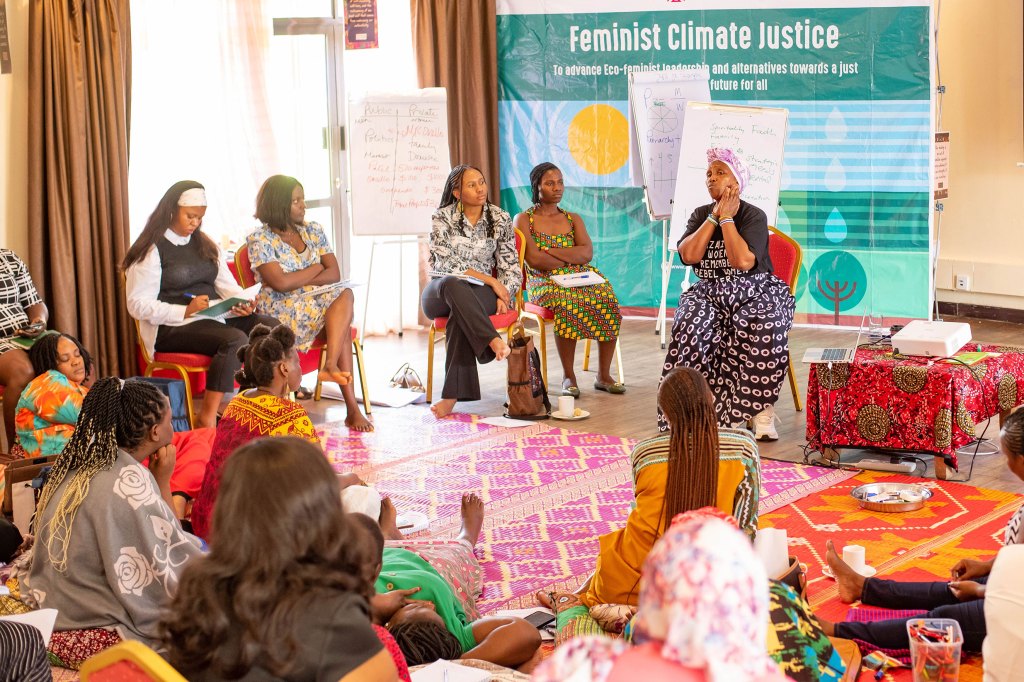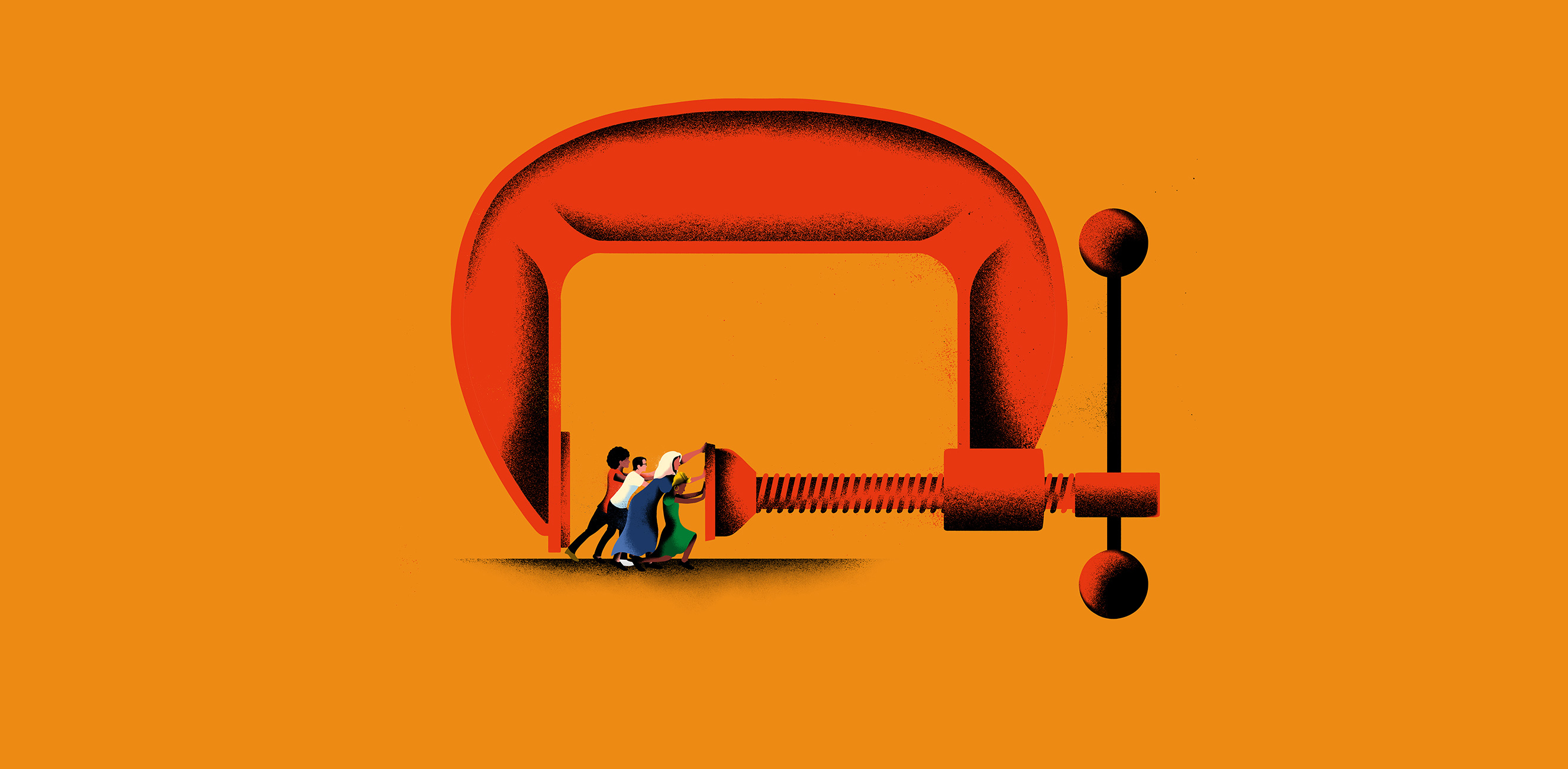
For 40 years, Akina Mama wa Afrika (AMwA) has been an anchor for African feminists organizing on the continent and abroad. Beginning as a collective of African women in diaspora, it has catalyzed a thriving pan-African feminist movement with solidarities across national boundaries. Its African Women’s Leadership Institute (AWLI), a hub for feminist learning and practice, provides space for African women in all their diversities to learn how to apply feminist strategies and theory to address issues in their communities. It has been a launching pad for powerful voices in women’s political leadership, economic justice and climate action, sexual and reproductive health and rights, and more. To date, more than 10,000 women have graduated from AWLI, which celebrates its 28th anniversary this year.
“It’s a very powerful thing to understand how much AMwA has been a foundational space for a lot of African feminists,” said Olabukunola “Buky” Williams, AMwA’s sexual and reproductive health and rights lead and one of the Institute’s graduates. “For them to not only acknowledge their power but learn, unlearn, and relearn, push for social change and build communities. For them to know that they’re not alone in doing this very deep and necessary work.”
AMwA and many AWLI alumni have not only built a thriving community but also used it to further important policies for women across the continent. Leaders worked for years to advance the Protocol to the African Charter on Human and Peoples’ Rights on the Rights of Women in Africa, also known as the Maputo Protocol of 2003, which addressed and enshrined a wide range of rights for women on the continent—including the right to social and economic equality, reproductive health, and the right to live free from gender-based violence. AMwA is also a member of Solidarity for African Women’s Rights, a coalition of more than 70 civil society organizations working across 33 countries, which was formed to build awareness of the Maputo Protocol and the need for its implementation at the national level.
Learn more about Defenders of Dignity
Recognising that their regional efforts can inform global justice solutions, AMwA policy and solidarity work reaches beyond Africa. Recently, AMwA has been working in collaboration with Geledés Black Women’s Institute, an organization confronting racism and sexism in Brazil, to help foster conversations between African and Afro-Brazilian women and build leadership and solidarity across the Global South.
As AMwA strengthens its connections with women in other parts of the world, its alumni are working to transform systems of power through research, advocacy, local leadership training and support, and other creative ways. Williams believes governments must understand and be responsive to the needs of their citizens, especially those who face different forms of discrimination, vulnerability, and marginalization—and who ultimately power economies. AMwA provides a clear analysis of the ways in which women’s unpaid and underpaid labor is often used to uphold these unjust systems and find ways to ensure that power is more evenly shared across genders, countries, and communities.
For Williams and the community of AMwA, African feminism is an essential guiding principle for making meaningful improvements in the lives of every African and Afro-descendent person. It is the root of creating a more equitable and compassionate world.
“Somebody asked me what I see when I read the African feminist charter. I said that I see love,” said Williams. “You show love and care by sharing power. That is the most basic form of love.”
